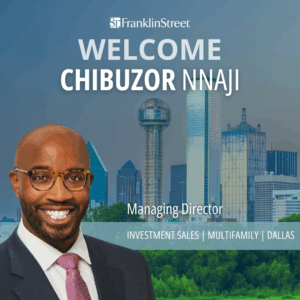When Brian Davison announced plans to build up to 78 new condos in downtown St. Petersburg, he revealed another surprise: His company, EquiAlt, plans to “self-finance” the project.
That could be a smart move. Both nationally and in the Tampa Bay area, businesses are finding it harder to get money from banks these days.
No one is saying that bay area’s building boom is about to screech to a halt. But borrowers for many types of projects — especially new hotels, apartments and retail outlets — can expect to pay higher interest rates, put more of their own money into the project, or both.
Just in the past two weeks, “I’ve seen more banks pull back and tread more lightly,” said Robert Stern, a Tampa real estate attorney whose clients include lenders as well as business borrowers. “I have seen local deals not close, or get declined or blow up because of the difficulty of financing.”
Lou Plasencia, CEO of Tampa’s hospitality sales and consulting firm The Plasencia Group, agrees that loans are tougher to come by.
“All of commercial real estate is experiencing that, particularly new-build construction,” Plasencia said. “I think there is ample financing for acquisitions, especially if there is a long-term relationship between borrower and lender, but certainly on new construction the markets have tightened dramatically in the past 12 months.”
In a recent report, the big Ohio-based financial advisor Bahl & Gaynor states: “Loan growth has plateaued… for now.” The total dollar amount of loans nationwide plummeted after the 2008 financial crash but began a steady climb between 2011 to mid-2015, when it far surpassed even pre-crash levels. Since then, the volume has leveled off or even dipped a bit.
Uncertainty over health care, tax reform and spending on roads, bridges and other infrastructure is contributing to “anemic loan growth,” the report said.
Al Rogers, senior vice president of St. Petersburg-based USAmeriBank, notes that commercial lending remains stronger in Florida than in many other parts of the country because of the state’s growing population. The bank, which has branches in Alabama and in Pinellas and Hillsborough counties, made 70 percent more business loans last year than it did in 2012.
“Generally we see a fairly vibrant economy but there’s clearly uncertainty about what’s going to happen with Washington,” Rogers said. “And we haven’t forgotten the tough times that we all experienced. Hopefully, people will remain vigilant and work hard to make sure deals work before lending.”
Today, business borrowers can expect to pay higher interest, typically 5 percent compared to 4.5 percent last year. “A project has to be that much more solid to clear that hurdle,” Rogers said.
In Tampa Bay, apartment developers are among those likely to feel the loan squeeze. Thousands of new upscale apartment units have been built since the recession, especially in Tampa and downtown St. Petersburg. And while the bay area has enjoyed strong job growth, incomes have not kept pace so the demand for rentals as high as $3,900 a month could start to wane.
“For new construction, we are absolutely seeing a pull back from the lender community,” said Darron Kattan, who specializes in multi-family housing for the Tampa brokerage Franklin Street. Banks prefer developers with proven records and even those might have to increase their equity in the project by 5 or 10 percent, he said.
On the flip side, it’s easier to buy an existing apartment community.
“Lenders want do those deals now more than before,” Kattan said. “It takes a lot of risk out of the deal because you have existing cash flow (from rents).”
New hotel construction could also be challenging to finance, even though the Tampa Bay area currently is one of the hottest hotel markets in the country.
“Tampa is performing significantly better than other markets, still the pace of growth in the bay area has slowed,” Plasencia said. “If you are a new investor in the lodging sector and don’t have strong lending relations, in all likelihood lenders are going to require you to put more equity in the deal.”
And with more and more people shopping online, loans for brick-and mortar stores will be tricky to get.
“The retail sector is challenging unless you have a good, strong grocery-anchored center like Aldi, Publix or Sprouts,” Stern said. Lenders also prefer retail owners that are going to use the property themselves rather then rent it out.
Even as lending tightens, however, some Tampa Bay businesses should still have little trouble borrowing.
Self-storage facilities are easy to finance because they are cheap to build, generate good cash flow and don’t require much work to operate. Medical offices will be in demand as the population ages. More warehouse space will be needed as Tampa Bay continues to grow.
Many warehouse are full and “there’s not a lot of new product so most of what’s out there is getting upgraded and absorbed,” said Rogers of USAmeriBank. “You could see occupancy trending up along with rents.”
Rents and occupancy rates also are climbing in Tampa Bay’s aging stock of office towers. That has prompted plans for two big mixed-used projects expected to have ample office space — a 40-plus-story tower in downtown St. Petersburg and a 52-story building on the site of the doomed Trump Tower Tampa project.
But office developers likely will have to pre-lease more space before they can borrow. Similarly, condo developers will have to pre-sell more units if they want a loan.
Davison said his Tampa company always intended to use private financing rather than commercial lenders to build its downtown St. Petersburg condos.
“All my co-business people that I’ve seen at cocktail parties in the last year are having difficulties,” he said. “The banks are flat out not lending on something where the cash is not flowing right now.”
The loan situation isn’t quite that bad, Stern says, though he finds that the “speed and enthusiasm” with which banks dole out money has definitely waned.
“The good deals will always get financing, the medium deals will be declined or delayed,” he said. “(Lenders) are taking a step back to watch to see how this economic cycle plays out.”



